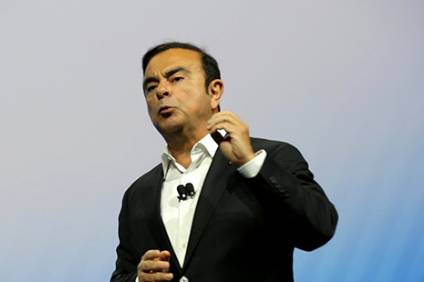The board of Renault has decided to change its CEO in a sign that it is determined to move on from the turmoil of the past year and the uncertainty that hangs over its relationship with Alliance partner Nissan.
The Renault board knows that Renault’s strategic direction is effectively on hold in the wake of Nissan’s current difficulties and a proposed Fiat-Chrysler merger that was rejected. That needs to be addressed and today’s announcement that a temporary CEO replaces Thierry Bollore (seen as an old guard representative) while a permanent CEO is sought, signals it is serious about moving on from the Carlos Ghosn era.
Top of the agenda is the need for clarity and a possible re-set of the Renault-Nissan Alliance. A full merger is well and truly off the agenda, but both companies will be aware of the difficulties involved in separating out their existing joint activities and operations. The Alliance has delivered substantial benefits to its participants over many years in engineering savings, supply-chain leverage and scale economies. Annual cost savings are in excess of EUR5bn, with EUR10bn a year previously targeted, helped by the 2017 addition of Mitsubishi to the club. That EUR10bn figure may look optimistic now after the tensions of the past year, but the sizeable Alliance synergies and cost savings would certainly be missed if they disappeared.
However, the formal relationship between the two companies – in particular cross-shareholdings between Renault and Nissan were formed many years ago – and the perceived imbalance in the power share is at the heart of political pressures and tensions that culminated in former Nissan chairman Carlos Ghosn’s ignominious downfall. The next permanent Renault CEO has to put that relationship on a sound footing and reconsider the sensitive question of cross-shareholdings (further complicated by the influence of the French State in Renault’s affairs). It is a prerequisite for discussions that might involve adding other companies to the combination for further gain. Indeed, the merger proposal from FCA to Renault included ideas for cost savings that would benefit Renault and its Alliance partners.
Both companies clearly need to set their strategic direction with effective leadership from their CEOs paramount.
Nissan has particular problems in turning around its losses and recovering share and margin in North America. Meanwhile, Renault is facing extremely competitive conditions in the European car market. Both are subject to rising pressures on all companies in the auto industry, especially rising investment commitments in costly advanced technologies such as electrification.
The two companies would be ill-advised to lose the benefits from their Alliance, but there is a clear need for clarity on if and how the Alliance can continue and how it can continue to benefit the business growth strategies of its participants.
See also: Renault dismisses Bolloré-appoints Clotilde Delbos temp CEO







